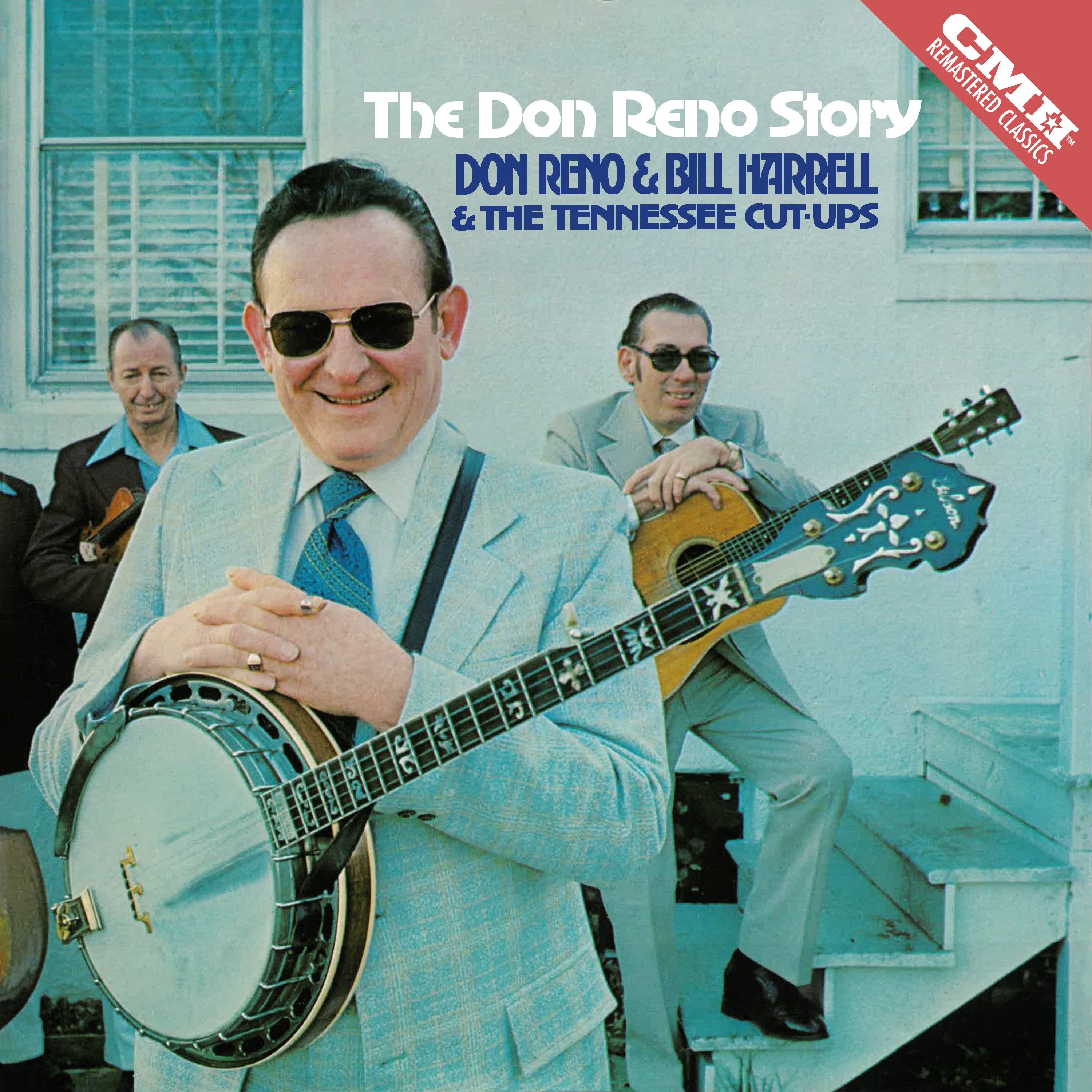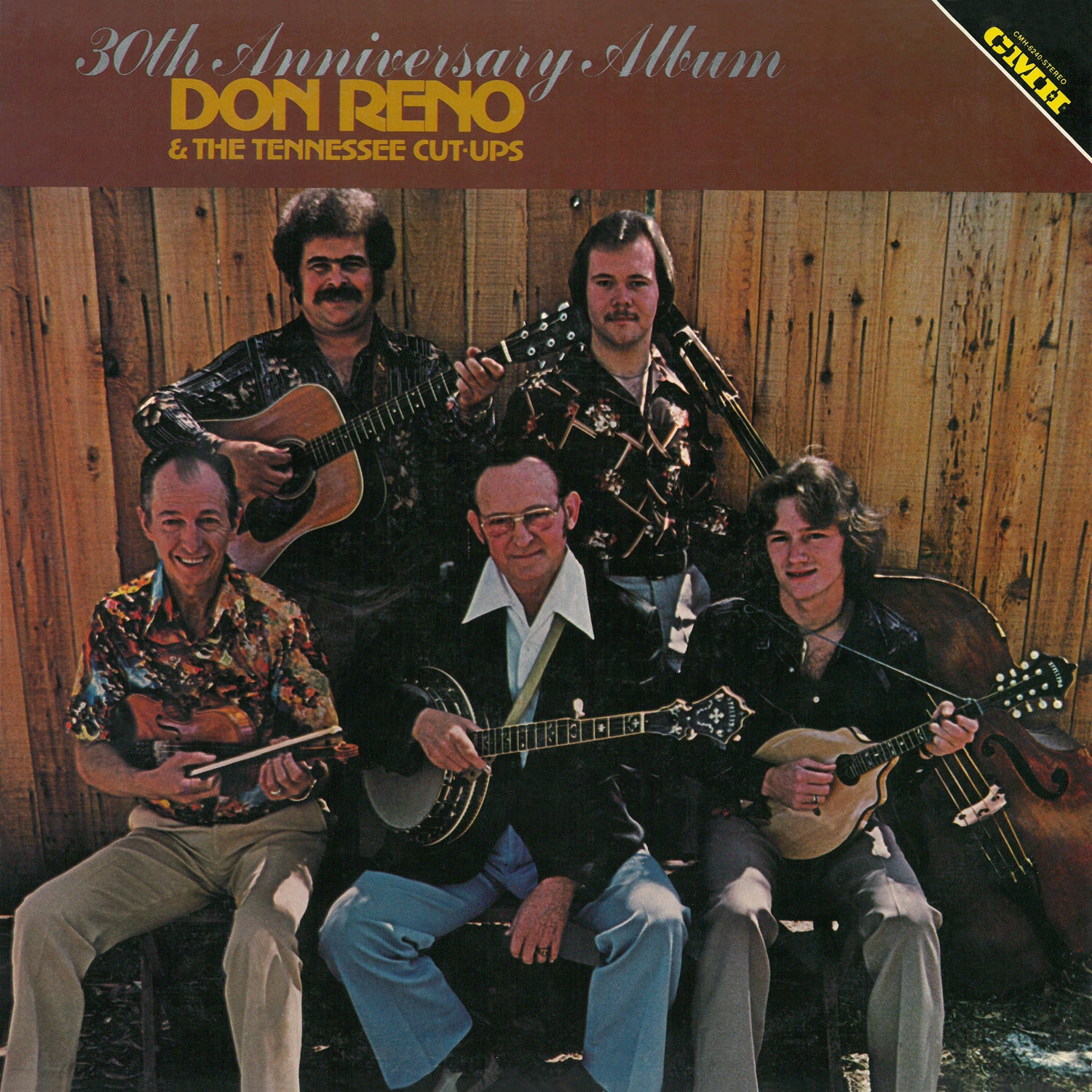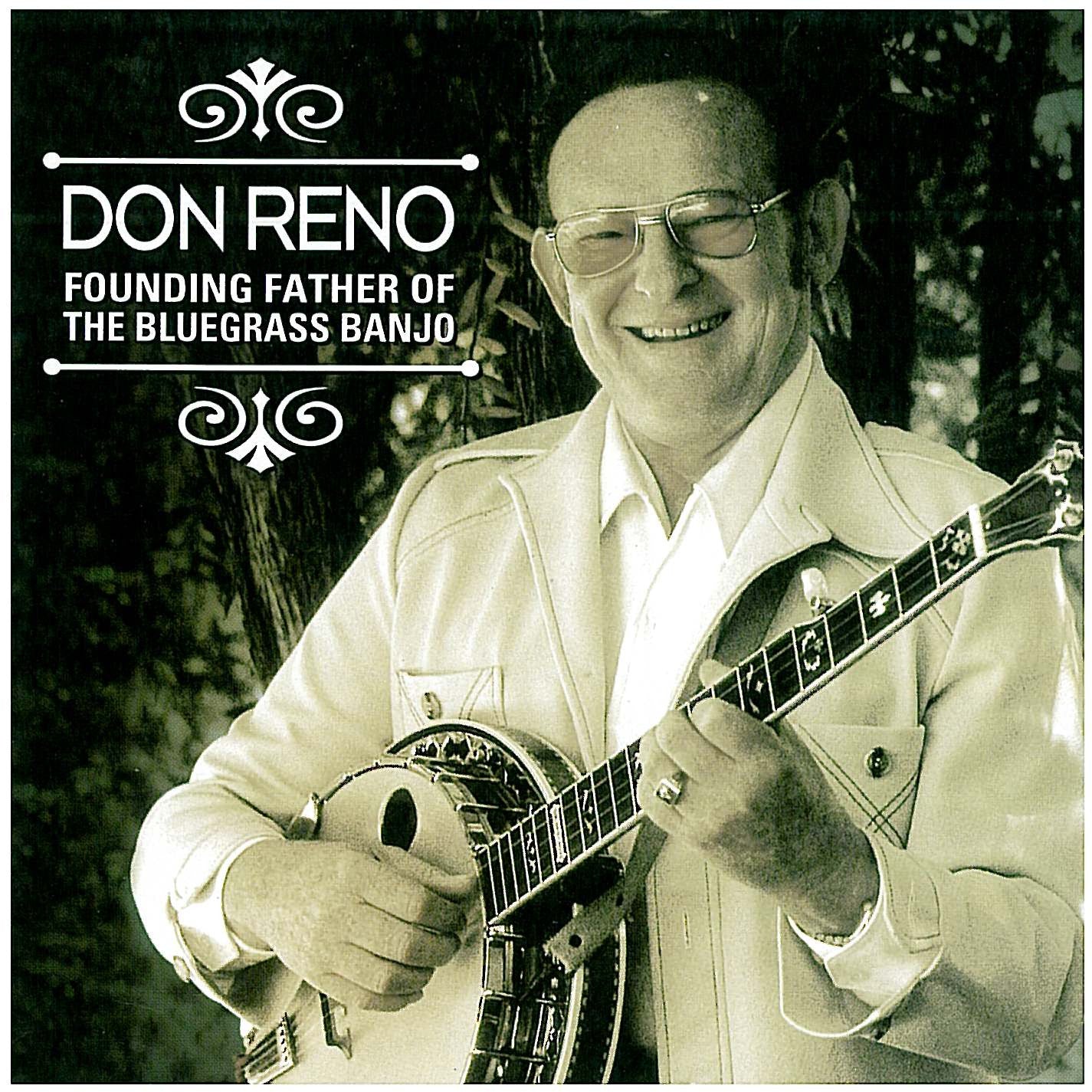Don Reno
Born in 1926 and raised on a farm in Haywood County, North Carolina, Don Reno began playing guitar at only five years old. He picked up a banjo shortly after and began playing professionally at the age of 13.

After serving in the military as a sixteen year-old in the midst of World War II, Reno returned home and quickly made a name for himself in the world of bluegrass. Mass audiences may be familiar with Don Reno’s iconic playing via his and Arthur Smith’s surprise hit “Feudin’ Banjos” (as made famous in the 1972 film Deliverance, 17 years after the song was first released), but the musician’s history and work goes much deeper than that.
Reno made his first recordings in Cincinnati with his group The Tennessee Cut-Ups in 1952. It wasn’t long after that that he became known as an innovator of bluegrass banjo and guitar techniques. He is recognized for having developed his own two-finger “single string” approach to the banjo and is likewise considered a foundational adopter of flatpicking guitar technique, both instrumental approaches that continue to shape the way bluegrass is played today.
Beyond that, Reno was a masterful songwriter and vocalist and he had the records and credentials to prove it. In his lifetime, he amassed over 25 full-length albums and over 60 singles in his name first dating back to 1952. His musical partnership with Red Smiley produced bluegrass standards and hits like "I'm Using My Bible For A Road Map,” "I Wouldn't Change You If I Could,” and "Don't Let Your Sweet Love Die.” In 1955 he showed just how skilled he was, recording his songs “Green Mountain Hop” and “Home Sweet Home” by overdubbing vocals, guitar, banjo, fiddle, bass, and snare drum himself.
Reno recorded six full-length albums during his time at CMH, spanning a brief few years from 1976 to 1979. He continued making and releasing music all his life, up until the year he passed in 1986. In 1992 he received posthumous induction into the International Bluegrass Music Hall of Honor.





